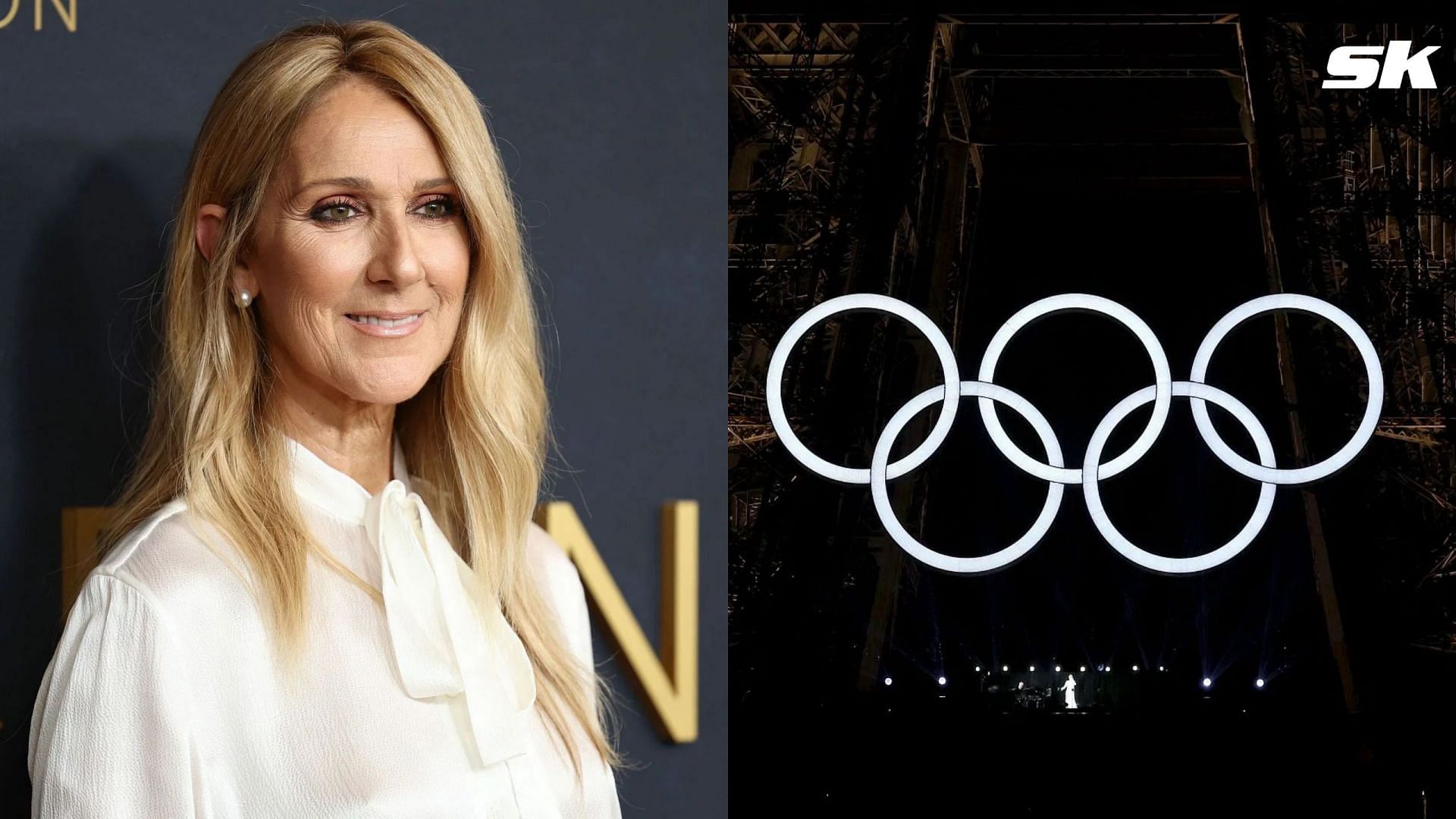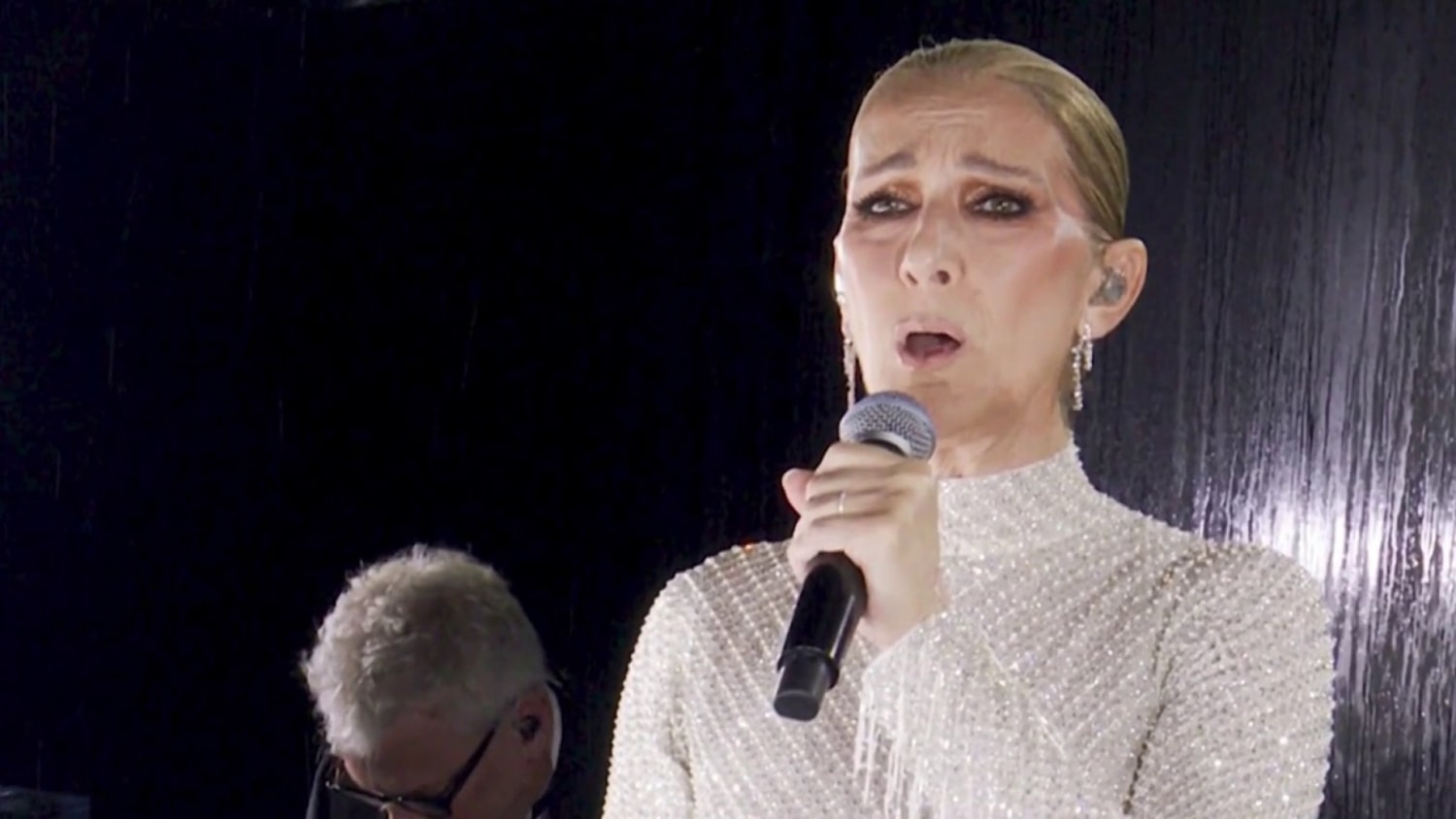The Olympics have long been a symbol of global unity and cultural celebration, with moments that leave an indelible mark on history. One such moment is Celine Dion's unforgettable performance of "The Power of the Dream" during the 1992 Barcelona Olympics. This iconic anthem captivated millions around the world, showcasing the power of music to transcend borders. In this article, we will delve into the translation of the song, exploring its profound meaning, cultural significance, and its lasting impact on diverse audiences.
This article aims to provide a comprehensive analysis of "The Power of the Dream," examining its lyrical depth, cultural relevance, and why it continues to resonate with people today. Whether you're a fan of Celine Dion or simply fascinated by the art of translation, this exploration will offer valuable insights into the intersection of music and language.
As we journey through the translation process, we will explore how the song's message transcends linguistic barriers, connecting with listeners on an emotional and universal level. Additionally, this article will emphasize the importance of cultural sensitivity in translating music, ensuring that its essence is preserved across languages.
Read also:Exploring The Remarkable World Of Zeeko Zaki
Table of Contents
- Understanding the Anthem
- Celine Dion: A Global Icon
- The Anthem's Significance
- Navigating the Translation Process
- The Cultural Impact of the Anthem
- Unpacking the Lyrics
- Overcoming Language Challenges
- The Evolution of Olympic Anthems
- Audience Reception and Legacy
- Final Thoughts
Understanding the Anthem
Celine Dion's rendition of "The Power of the Dream" at the 1992 Barcelona Olympics remains one of the most celebrated moments in Olympic history. Composed by David Foster, the anthem was crafted specifically for the Games, embodying themes of unity, hope, and perseverance. Celine's emotive delivery and the song's powerful lyrics ensured its place as an instant classic.
As a bilingual performer fluent in French and English, Celine Dion brought a unique perspective to the anthem, allowing it to resonate with audiences across linguistic and cultural boundaries. The anthem's universal themes of dreams, perseverance, and global harmony aligned perfectly with the Olympics' mission to promote peace, cooperation, and understanding among nations.
Celine Dion: A Global Icon
Celine Dion, born on March 30, 1968, in Charlemagne, Quebec, Canada, is a global music icon whose career has spanned over four decades. Known for her powerful voice and heartfelt performances, she has sold more than 250 million records worldwide, earning her a place among the best-selling artists of all time. Celine's ability to connect with her audience has earned her numerous accolades, including five Grammy Awards and a legacy that transcends generations.
Celine Dion's Biodata
| Full Name | Céline Marie Claudette Dion |
|---|---|
| Date of Birth | March 30, 1968 |
| Place of Birth | Charlemagne, Quebec, Canada |
| Occupation | Singer, Songwriter |
| Language(s) | French, English |
The Anthem's Significance
The significance of "The Power of the Dream" lies in its ability to encapsulate the spirit of the Olympics. The anthem reflects the core values of determination, unity, and global harmony, making it a fitting tribute to the Games. Its enduring popularity is a testament to its universal appeal and emotional depth, resonating with audiences across cultures and generations.
Navigating the Translation Process
Translating a song like "The Power of the Dream" requires a delicate balance between preserving the original meaning and adapting it for a new audience. Translators must consider cultural nuances, linguistic differences, and the emotional tone of the lyrics. This section will explore the key steps involved in translating the song, highlighting the challenges and creative solutions that arise during the process.
Key Challenges in Translation
- Maintaining the emotional resonance of the original lyrics while adapting them for a new cultural context.
- Adapting metaphors and idioms to ensure cultural relevance without losing the song's essence.
- Ensuring that the rhythm and melody align seamlessly with the translated words to preserve the song's musical integrity.
The Cultural Impact of the Anthem
Celine Dion's performance of "The Power of the Dream" at the 1992 Barcelona Olympics had a profound cultural impact. It introduced the song to millions of viewers worldwide, bridging linguistic and cultural divides. The anthem became a powerful symbol of hope and unity, resonating with people from all walks of life and reinforcing the unifying power of music.
Read also:Exploring The Sophie Rain Onlyfans Leak Facts Myths And Ethical Considerations
Unpacking the Lyrics
The lyrics of "The Power of the Dream" are rich with symbolism and meaning, speaking to the universal human desire to overcome obstacles, chase dreams, and work together for a better future. Lines such as "I feel the power of the dream" and "Through the power of the dream" encapsulate the essence of the Olympic spirit, inspiring listeners to strive for excellence and embrace the challenges of life with courage and determination.
Overcoming Language Challenges
Translating a song involves overcoming several language challenges, including the adaptation of idiomatic expressions, cultural references, and rhyming schemes. For example, certain phrases may not have direct equivalents in another language, requiring translators to find creative solutions. Maintaining the rhythm and flow of the music while adapting the lyrics can be a complex and intricate process. This section will examine specific challenges faced in translating "The Power of the Dream" and the strategies employed to overcome them.
Examples of Language Nuances
- Idiomatic expressions that require adaptation to ensure cultural relevance.
- Cultural references that may need to be reinterpreted for a global audience.
- Rhyming schemes that differ between languages, necessitating innovative approaches to maintain musical harmony.
The Evolution of Olympic Anthems
The history of Olympic anthems dates back to the early 20th century, with each anthem reflecting the values and aspirations of its time. "The Power of the Dream" stands out as one of the most iconic anthems in Olympic history, symbolizing the global unity and hope that define the Games. This section will explore the historical context of Olympic anthems and their evolution over the years, highlighting the role they play in shaping the Olympic experience.
Audience Reception and Legacy
The reception of "The Power of the Dream" was overwhelmingly positive, with audiences praising Celine's powerful vocals and the anthem's inspiring message. The song's ability to transcend linguistic and cultural barriers made it a favorite among fans worldwide. This section will discuss how the song was received by different audiences and its lasting impact on Olympic music, cementing its place as a timeless classic.
Final Thoughts
In conclusion, the translation of "The Power of the Dream" exemplifies the importance of cultural understanding and linguistic adaptability in music. This timeless anthem continues to inspire millions, serving as a testament to the unifying power of music and the Olympic spirit. We encourage readers to share their thoughts on this article and explore other works that celebrate the beauty of language and music.
For more insights into the world of music and translation, be sure to explore our other articles. Together, let's celebrate the universal language of music and its ability to bring people together across borders and cultures.
,aspect=fill)

